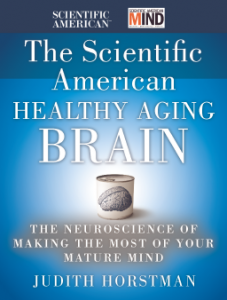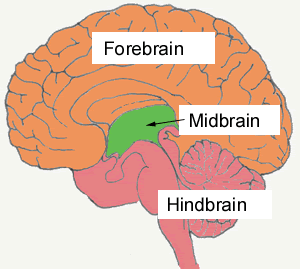Early Musical Training Boosts Motor Skills
 An interesting finding for parents looking to accelerated their kid’s brain development:
An interesting finding for parents looking to accelerated their kid’s brain development:
“A study published last month in the Journal of Neuroscience suggests that musical training before the age of seven has a significant effect on the development of the brain, showing that those who began early had stronger connections between motor regions – the parts of the brain that help you plan and carry out movements.”
The study found that the effect is strongest between the ages of 6-8 and that there appears to be no effect in adults.
Interested to hear from readers that are using music as part of their Next Brain development efforts.
Categories: Child, Cognitive Development, Music and Audio, Training Tags:
Raising Your Kid’s IQ – What Science Tells Us
 If you were to carefully review the scientific studies of the things parents can do to boost their kids’ IQ what would you find? That is exactly what researchers as the NYU Steinhardt School of Culture, Education, and Human Development did and here is what they found:
If you were to carefully review the scientific studies of the things parents can do to boost their kids’ IQ what would you find? That is exactly what researchers as the NYU Steinhardt School of Culture, Education, and Human Development did and here is what they found:
Overall, the results of the meta-analyses indicated that certain dietary and environmental interventions can be effective in raising children’s IQ.
More specifically:
- Pregnant moms or newborn that eat foods rich in Omega-3 can boost IQ by 3.5 points
- Interactive reading or reading with your child boosts IQ by 6 points if they are 4 years old or less
- Going to preschools that includes a language component boosts IQ by 7 points.
Increases in IQ are approximate but these are meaningful improvements.
The researcher expect to uncover additional insights which I will blog about. In the meantime I am interested to hear from readers about specific ways to boost a kid’s IQ.
Categories: Cognitive Development, Diet, Training Tags:
Reading the Classics Lights Up Your Brain
 Interesting new research from Liverpool University claims that Reading Shakespeare has a Dramatic Effect on the Human Brain. Actually they found that reading any classic literature for example Shakespeare, Wordsworth, Elliot, Bard and others causes far more brain activation than the same content translated into plain language. The classic prose demands attention, occasionally stimulates self reflection and builds more mental muscle because the brain works harder.
Interesting new research from Liverpool University claims that Reading Shakespeare has a Dramatic Effect on the Human Brain. Actually they found that reading any classic literature for example Shakespeare, Wordsworth, Elliot, Bard and others causes far more brain activation than the same content translated into plain language. The classic prose demands attention, occasionally stimulates self reflection and builds more mental muscle because the brain works harder.
How does it work? One insight the researchers offer:
“By throwing odd words into seemingly normal sentences, Shakespeare surprises the brain and catches it off guard in a manner that produces a sudden burst of activity – a sense of drama created out of the simplest of things.”
A bit like a magic trick.
I am interested to hear from readers that enjoy the classics. Does the non-standard use of language stimulate your brain in a positive way?
Categories: Books, Cognitive Development Tags:
Is Turmeric a Super Brain Spice?
 Psychology today has an interesting post on the brain boosting effects of Curry. They claim over 4000 studies of Curry’s health benefits have been conducted over the last 10 years. General findings for brain function and cognitive performance are that Curry containing tumeric can:
Psychology today has an interesting post on the brain boosting effects of Curry. They claim over 4000 studies of Curry’s health benefits have been conducted over the last 10 years. General findings for brain function and cognitive performance are that Curry containing tumeric can:
decrease the risk of dementia, stimulate the grow of new brain cells, increase the production of neurotransmitters that support clear thinking and good moods and is being a strong antioxidant it will reduce inflammation that can harm brain cells.
The key ingredient in Curry that is doing the brain work is the turmeric, a spice you can buy in local your grocery store. The article goes on to suggest other spices to use it with and a recipe to try. For example, using turmeric with black pepper enhances absorption of the spice into your system by 2000%.
I am going to experiment with turmeric and try and find ways to include it in my daily diet. Besides curry-based meals there are for example turmeric teas, eggs, fries and salads to try and even special turmeric or curcumin supplements.
Categories: Cognitive Development, Diet, Mental Focus Tags:
Using Neuroscience to Optimize the Mature Mind
 Just finished a good book by Judith Horstman where she explains the neuroscience of making the most of the mature mind. Her findings echo the discussions we have had on the Next Brain Blog. For example, Part three of the book explains in detail how exercise, nutrition, mental stimulation, being social and attitude play a central role in improving cognitive performance as we age.
Just finished a good book by Judith Horstman where she explains the neuroscience of making the most of the mature mind. Her findings echo the discussions we have had on the Next Brain Blog. For example, Part three of the book explains in detail how exercise, nutrition, mental stimulation, being social and attitude play a central role in improving cognitive performance as we age.
She pegs 20-60 years old as the zone of maximum performance for the brain but quickly points out some people peak later in their 70s, 80s and even 90s! She put the central idea of this blog, namely we are responsible for building our next brain, in plain language:
“You built the brain you have today and will continue to refine and remodel it with every action, thought, and feeling and every interaction with people, the experiences, and the environment around you.”
Have you read the book? If so what techniques or insights do think are the most important for building Your Next Brain?
Categories: Books, Cognitive Development, Older Adult Tags:
Good Grades are Mostly Determined by Self-Control
 I am often asked by parents what type of skills are critical for success in school. They hear about special programs or techniques for reading, note taking or math skills and want to know if they work. That is why I am always on the lookout for scientific research that probes how the mind’s of high-performing students work.
I am often asked by parents what type of skills are critical for success in school. They hear about special programs or techniques for reading, note taking or math skills and want to know if they work. That is why I am always on the lookout for scientific research that probes how the mind’s of high-performing students work.
For example, recent research on nearly 700 German eighth graders suggests that a student’s level of self-control is the number one factor that determines success. It is more important than memory, general intelligence, verbal ability, mental speed, numerical ability and even creativity. The researchers claim:
“The data show that the most important factor in getting good school grades was the student’s score on psychological tests of self-control. Cognitive ability was the next best predictor of grades, but in fact, it was not a very strong one.”
While not a surprise to readers of the Next Brain Blog, this is an important finding. Delaying gratification, managing procrastination and the ability to structure and manage time are the capacities that students need for success.
I am interested to hear from readers with insights into how to be an effective student. What learning and testing taking skills are critical and how can we develop them?
Categories: Child, Cognitive Development, College Student, IQ and EQ, Memory and Learning, Training Tags:
Develop Advanced Skills Even Late in Life
 The Kavli Foundation recently released a readable neuroscience research summary titled The Fantastic Plastic Brian. The report highlights the claim that adult brains remain adjustable even in the last years of life. Being adjustable (or plastic) means new neural connections can form and deep learning can take place. One example from the study:
The Kavli Foundation recently released a readable neuroscience research summary titled The Fantastic Plastic Brian. The report highlights the claim that adult brains remain adjustable even in the last years of life. Being adjustable (or plastic) means new neural connections can form and deep learning can take place. One example from the study:
I know a woman who didn’t begin to paint until she was in her 60’s, yet ended her life as a professional painter of high quality. We are capable of remarkable brain changes contributing to the development of remarkable new abilities at any stage of life.
This is an important finding. It means that not only are there natural cognitive advantages to aging (e.g. increased wisdom, emotional intelligence and learning from experience ability) it is possible to develop professional grade skills even in the most challenging domains.
I am interested to hear from readers that have develop new skills after 55 in art, science, engineering, technology, business, writing or another professional area.
Categories: Cognitive Development, Training Tags:
Bilingual Kids Can Have Mental Advantages
 I get emails from parents interested in hearing about evidence-based ways to improve their children’s brain function and cognitive performance. So I am always on the lookout for scientific studies that suggest Next Brain development ideas for kids. That’s why a university study from Scotland caught my eye. Researchers there found that children speaking two languages (bilingual) can have more mental agility than those that don’t. More specifically:
I get emails from parents interested in hearing about evidence-based ways to improve their children’s brain function and cognitive performance. So I am always on the lookout for scientific studies that suggest Next Brain development ideas for kids. That’s why a university study from Scotland caught my eye. Researchers there found that children speaking two languages (bilingual) can have more mental agility than those that don’t. More specifically:
“Our study has found that it can have demonstrable benefits, not only in language but in arithmetic, problem solving and enabling children to think creatively. We also assessed the children’s vocabulary, not so much for their knowledge of words as their understanding of them. Again, there was a marked difference in the level of detail and richness in description from the bilingual pupils.”
The children in the study were around age nine and the bilinguals spoke Italian and English. It is important to note that they do not claim that learning a second language will produce these cognitive improvements. But is is suggestive.
Interested to hear from readers that live in a bilingual household or that have extensive second language experience. How does it enrich your language skills and thinking abilities?
Categories: Child, Cognitive Development, Problem Solving, Training Tags:
Boost Your Brain But Not Too Much!
 The purpose of the Next Brain Blog is to explore ways to enhance brain function and improve cognitive performance. The blog is dedicated to exploring all ways of improving learning, decision-making, creativity, memory, levels of mental energy, pattern recognition, embodied cognition and all things mental. Nature gave us a hindbrain, midbrain and forebrain to deal with challenges in the environment. Optimistically, this blog assumes that we have the science, technology, drugs and training methods to take over where nature left off and create a Next Brain.
The purpose of the Next Brain Blog is to explore ways to enhance brain function and improve cognitive performance. The blog is dedicated to exploring all ways of improving learning, decision-making, creativity, memory, levels of mental energy, pattern recognition, embodied cognition and all things mental. Nature gave us a hindbrain, midbrain and forebrain to deal with challenges in the environment. Optimistically, this blog assumes that we have the science, technology, drugs and training methods to take over where nature left off and create a Next Brain.
But is cognitive enhancement necessarily a good thing? An interesting new article, Why Aren’t We Smarter Already: Evolutionary Trade-0ffs and Cognitive Enhancements suggest that perhaps it is not. The article points out that:
- Having a bigger brain means a baby’s head might not make it through a mother’s pelvis region leading to increases in infant mortality
- Cognition enhancing drugs such as Ritalin can cause poorer performance in individuals with normal attention levels and may interfere with some tasks such as driving because they cause us to over focus on the wrong things
- Having a super sharp or extraordinary memory seems to correlate to leading a difficult life and would certainty magnify the effects of trauma
- Very high IQ individuals may be more prone to genetic nervous system disorders.
The authors argue that our brains are in a natural balance with other parts of our bodies and the environment. Radical improvements in any aspect of cognition throws us out of balance and results in problems. While such fundamental trade-offs might make a supermind or megamind unlikely, the authors point out:
“If you have a specific task that requires more memory or more speed or more accuracy or whatever, then you could potentially take an enhancer that increases your capacity for that task,” he says. “But it would be wrong to think that this is going to improve your abilities all across the board.”
While interventions that are strong enough to create radical cognitive improvements are some time off, the article does begin to develop a framework for a deeper understanding of the issues and limitations associated with our ambition for bigger better brains.
Categories: Cognitive Development Tags: smart drugs
Gift Giving Idea: Consider Fat Brain Toys
 Fat Brain offers an amazing collection of high quality toys and entertainments designed to stimulate the brain and develop cognition. You can shop for toys by gender and ages ranging from 1 year old to 18 years old. From magnetic poetry and brain food (colorful goo) to the best selling stomp rockets and reflections (image shown), a truly unique game that combines mirrors, visual illusion and competition.
Fat Brain offers an amazing collection of high quality toys and entertainments designed to stimulate the brain and develop cognition. You can shop for toys by gender and ages ranging from 1 year old to 18 years old. From magnetic poetry and brain food (colorful goo) to the best selling stomp rockets and reflections (image shown), a truly unique game that combines mirrors, visual illusion and competition.
Just the kind of toys that should be on the holiday shopping list of Next Brain Blog readers. Interested to hear from anyone that has purchased or plays with Fat Brain Toys. How are they making you smarter?
Categories: Child, Cognitive Development, College Student, Mental Focus, Other, Perception, Problem Solving Tags: toys

